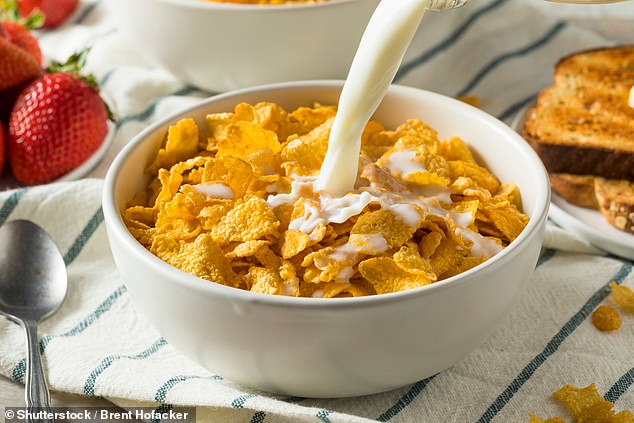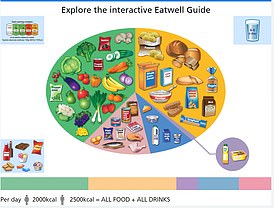- Niacin is added to ‘fortified’ foods as a common B vitamin and to lower cholesterol
- But researchers say it is associated with heart attacks and heart conditions.
A vitamin added to cereals, bread and pasta may be linked to heart disease, according to a study.
Niacin, found in many breakfast cereals and other “enriched” or “fortified” food products, is a common B vitamin previously recommended for lowering cholesterol.
But researchers found that a chemical called 4PY, created when the body breaks down excess niacin, is strongly associated with heart attacks, strokes and heart conditions.
Dr. Stanley Hazen, of the Cleveland Clinic in Ohio, said niacin could be a “significant but previously unrecognized contributor” to the development of cardiovascular disease.
“The main takeaway is not that we should completely eliminate our niacin intake [but] debate about whether a continued mandate to fortify flour and cereals with niacin could be justified,” he said.
Niacin, a vitamin added to breakfast cereals, pasta and even bread, may be linked to heart disease, Ohio study finds
For decades, it has been a legal requirement to fortify all white flour sold in the UK with niacin. The amount that must be added (2.4 mg per 100 g) was increased by the Government in 2022.
Niacin deficiency can lead to a potentially fatal condition called pellagra. Symptoms include inflamed skin, mouth sores, diarrhea, and even dementia.
According to the NHS, the recommended daily allowance of niacin is 16.5 mg for men and 13.2 mg for women.
However, in their US study, published in Nature Medicine, researchers found that one in four people consumed too much and had high levels of 4PY in their blood.
Dr Hazen said: “The effects of niacin have always been something of a paradox. Despite lowering cholesterol, the clinical benefits have always been less than anticipated.
‘This led to the idea that excess niacin caused unclear adverse effects that partially offset the cholesterol-lowering benefits.
«We believe that our findings help explain this paradox. This illustrates why it is so important to investigate residual cardiovascular risk; We learn a lot more than we set out to find.’
Many breakfast cereals are “fortified” with niacin. Corn flakes contain 13 mg per 100 g, which means that a 50 g bowl contains approximately half the recommended daily amount.
Many popular daily multivitamins contain about 50 mg, more than 300 percent of a man’s recommended daily dose.



